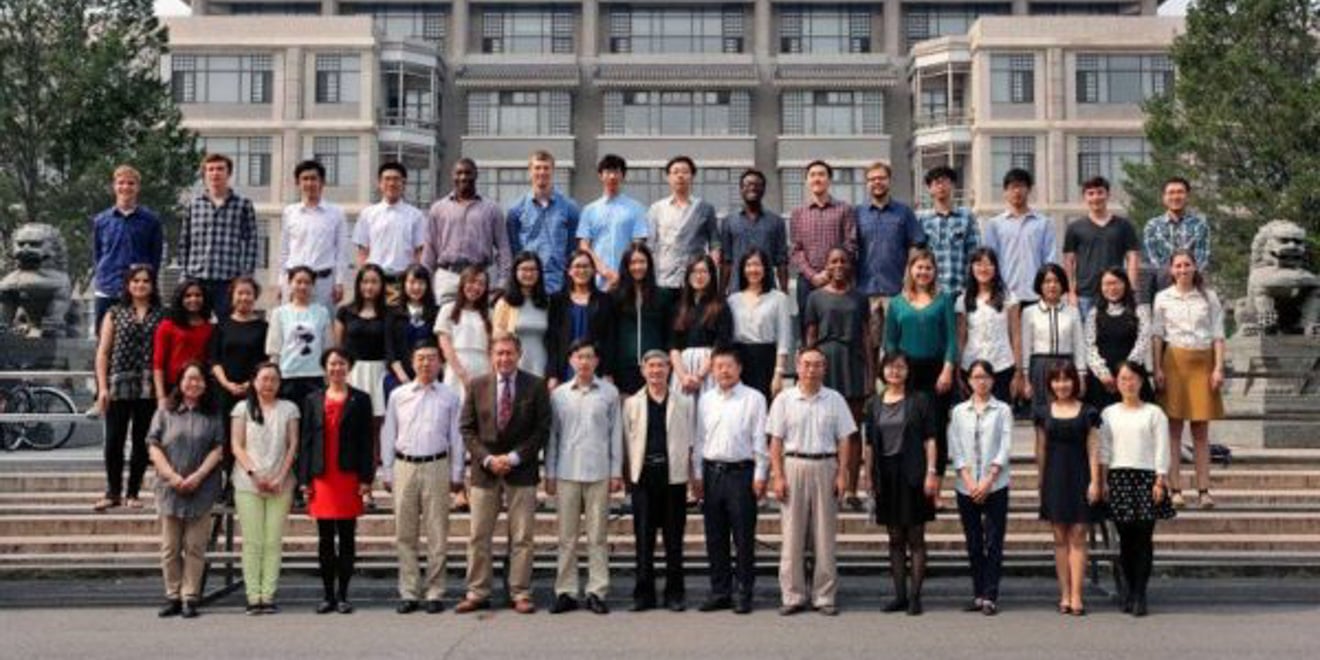Although Stanford closed its center in Beijing at the end of the 2016-17 academic year, the Bing Overseas Studies Program (BOSP) is actively seeking to expand its current abroad offerings in the future.
Burke Family Director of the Bing Overseas Studies Program Ramón Saldívar said that BOSP is looking for a new site in China as well as exploring new possibilities in Russia and India.
“When the program in Beijing was created 10 years ago, the belief was that Beijing was the best place for us to be, and it probably was,” Saldívar said. “But times have changed, and Stanford students today and Stanford faculty were not finding Beijing the best place for them to be in China.”
Julia Duncan ’18, a lead student ambassador for BOSP, explained that the amount of student interest can impact the success of a center.
“They closed it [Beijing] because there wasn’t enough demonstrated student interest in it.”
BOSP decided to cancel the Beijing program in 2017 due to low enrollment numbers, and spring 2017 was the program’s final quarter.
The closure of BOSP’s only center in China came amid student concerns about academic diversity at Stanford, including the range of overseas campuses in the past. The year before Beijing was cancelled, the group Who’s Teaching Us demanded that Stanford expand its abroad offerings to include five additional non-Western campuses.
However, BOSP does intend to open a new center in China or a Chinese-speaking city. According to Saldívar, BOSP is particularly interested in either Shanghai or Hong Kong as new centers for a Stanford study abroad program.
“[BOSP is] trying to establish new relations with different universities,” Duncan said. “It strengthens the program if you have a base university.”
Beijing is not the only program that has faced reduced enrollment. According to Zane Zook ’17, a student ambassador for the Kyoto program, BOSP cancelled the winter quarter option for Kyoto due to a lack of interest from students, although the spring program in Kyoto remains popular.
Stanford has also suspended other campuses recently. The center in Istanbul has remained closed since 2015 due to the U.S. travel warning for Turkey. Just last week, BOSP cancelled the spring 2018 program in Cape Town due to a water crisis in the city.
To expand the range of study abroad options, BOSP is also exploring reviving new opportunities in Russia after the Moscow program was suspended following its last offering in fall 2013. Gabriella Safran, professor in the department of Slavic language literatures and leader of this summer’s overseas seminar in St. Petersburg, said that a partner university has been identified.
“We have been running pilot programs for the past four years with the goal of establishing a new center — permanent, quarter-length center in Russia — this time in St. Petersburg,” Saldívar said.
But Saldívar added that he is unsure whether a center in Russia in the near future is possible.
“The fact of the matter is that Russia remains a politically complicated society, and it may not be the most welcoming place for American citizens right now,” Saldívar explained. “In particular, the turmoil within Russian society and Russian political structures also makes it necessary for BOSP to be very careful and very deliberate in its attempt to seek out a new place for a new center in Russia.”
According to Safran, the center in Moscow closed for administrative rather than political reasons. The process of starting a new program has been complicated, she said, but she added she was “confident” that a new Russia program would be ready in the next two or three years.
According to Safran, the summer 2018 overseas seminar in St. Petersburg has been very popular with students; the program received 70 applications for 15 spots.
“It was really encouraging in terms of making us think that, when we do get to open a quarter-long program, there’s going to be student interest because Russia remains fascinating as well as complicated,” Safran said.
Aside from China and Russia, Saldívar said that he has seen demand for a BOSP campus in India from both students and faculty, although he said establishing a program there is more of a “longer range” project.
BOSP’s overseas seminars serve as another entry point for new programs and locations.
“New opportunities, new locations, new sites in Western Europe — in Africa, in Latin America, in Asia — are also opportunities for students to study overseas in a really exciting context that may change from year to year,” Saldívar said. “And those are entirely always developed by Stanford faculty. So we have a great deal of control over the quality of those programs because basically they are run by the professors here on campus.”
Contact Nohemi Davila at nohemi ‘at’ stanford.edu.
